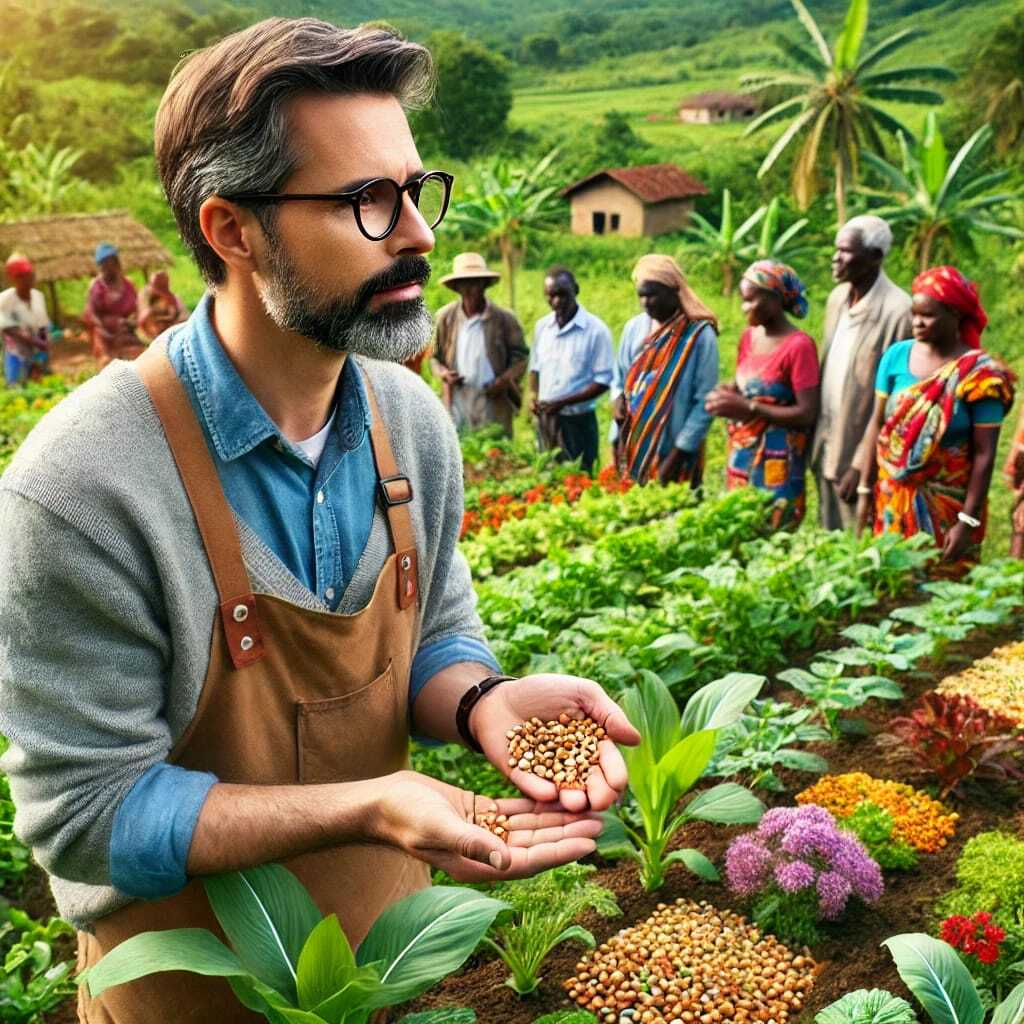HealthyDiets4Africa: Transforming African Food Systems Through Diversity and Innovation
When crop scientist Michael Frei grew up in Germany in the 1980s, television screens were filled with heartbreaking images of poverty, drought, and famine across Africa. The devastating Ethiopian famine of 1984 inspired him to engage in campaigns and fundraising, eventually leading him to pursue a career in agronomy, specializing in sustainable plant production and global food security.
🌾 A Mission for Change
Now a professor of agronomy at Justus Liebig University in Giessen, Germany, Frei leads the HealthyDiets4Africa (HD4A) initiative, an EU-funded international research project launched in 2023 that will continue until 2028. This initiative collaborates with experts across Africa and Europe, along with organizations such as the UN World Food Programme and International Institutes of Plant Genetic Resources and Tropical Agriculture. The goal is to explore whether greater diversity in African food systems can help address malnutrition while promoting environmental sustainability.
🔬 Food System Labs: Analyzing Crops for Health and Sustainability
Eight "food system labs" have been established across African countries, spanning from Liberia in the west to Kenya in the east. These labs, coordinated by the Africa Rice Center in Côte d’Ivoire, analyze plants for nutritional value and investigate ways to integrate them into local diets. Frei believes that introducing greater diversity in food systems can address dietary deficits and benefit the environment by reducing monocultures.
“A diverse diet is healthier, can address many of the dietary deficits that we see, and overall is more environmentally stable,” said Frei.
🍲 Tackling the Triple Burden of Malnutrition
Frei highlights the “triple burden of malnutrition” faced by Africa:
- Hunger: Over 150 million people in Africa still lack sufficient food.
- Micronutrient Deficiency: Many who have enough to eat suffer from deficiencies in essential nutrients such as zinc and iron.
- Obesity and Lifestyle Diseases: Rising urbanization has led to increased consumption of processed foods high in sugar and unhealthy fats, contributing to obesity, diabetes, and heart disease.
🌾 Strength in Crop Diversity The HD4A initiative promotes cultivating nutrient-rich, lesser-utilized crops that have high nutritional value and are environmentally friendly.
- Amaranth: A drought-resilient leafy vegetable.
- Cowpeas: A legume that fixes nitrogen in the soil, reducing the need for fertilizers and benefiting companion crops.
- Parkia biglobosa (Locust Bean Tree): Produces nutrient-rich seeds, traditionally used for flavoring soups but increasingly replaced by less nutritious alternatives.
Frei emphasizes that “we do not want to go back to the Stone Age – we just want to ensure people don’t abandon the good things they had while developing diversified, productive modern cropping systems.”
🍎 Overcoming Social Barriers to Healthier Diets
Professor Christophe Matthys of KU Leuven in Belgium is translating these advances in plant science into practical health benefits. Matthys highlights the importance of addressing social perceptions that hinder dietary improvements, such as views associating overconsumption with wealth or seeing fruits as food for the poor.
🍘 Innovative Food Products for Better Nutrition
One pilot project in Côte d’Ivoire is testing micronutrient-rich rice crackers in schools to gauge taste, acceptance, and willingness to pay. Dr. Sali Ndindeng from AfricaRice leads this initiative, which aims to provide nutrient-dense options for school feeding programs.
🎯 Advocating for Change at the Nutrition for Growth (N4G) Summit
Matthys plans to present HD4A’s work at the Nutrition for Growth (N4G) Summit in Paris, France, on March 27-28, 2025. This global conference, held every four years, gathers governments, international organizations, and businesses to mobilize resources and commitments aimed at improving global nutrition. “It’s important to highlight that Africa is more than just undernutrition – it’s a wealth of possibilities with new vegetables, fruits, and crops that can positively impact health,” Matthys said.
🌍 A Future of Diverse and Nutritious Diets
Looking ahead, Frei and Matthys hope to inspire action towards developing locally grown, diverse, and nutrient-rich food products that can become staples in both African and global diets.
“I really hope we can plant the idea of food diversification in people’s minds,” said Matthys. This research was funded by the EU’s Horizon Programme. The views expressed by the interviewees do not necessarily reflect those of the European Commission.
If you enjoyed this article, please consider sharing it on social media. 📢
Follow & Subscribe:
👉 Africa Agri Market on LinkedIn for the latest updates and insights.
🌐 Visit us at www.africa-agri-market.com for more information!
